by Gabriel Levitt, President, PharmacyChecker.com and Prescription Justice | Oct 12, 2017 | Drug Importation
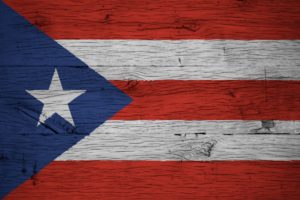 The FDA has just announced that the next few weeks may spell shortages of some critical, life-saving medications. Why? Well, a lot of pharmaceuticals you rely on here in the U.S. are manufactured in Puerto Rico, the U.S. territory which was tragically hit—and hit hard— by Hurricane Maria. If your medication is not available on U.S. pharmacy shelves, then you may be able to find it online, where it may be stocked internationally, but make sure to stick to pharmacy websites verified by PharmacyChecker.
The FDA has just announced that the next few weeks may spell shortages of some critical, life-saving medications. Why? Well, a lot of pharmaceuticals you rely on here in the U.S. are manufactured in Puerto Rico, the U.S. territory which was tragically hit—and hit hard— by Hurricane Maria. If your medication is not available on U.S. pharmacy shelves, then you may be able to find it online, where it may be stocked internationally, but make sure to stick to pharmacy websites verified by PharmacyChecker.
According to the NY Times, there are 80 plants in PR that make drugs for the U.S., including Xarelto and Humira, accounting for $15 billion in sales last year. The industry states (more…)
Tagged with: hurricane, puerto rico, shortages
by Gabriel Levitt, President, PharmacyChecker.com and Prescription Justice | Sep 29, 2017 | Drug Importation
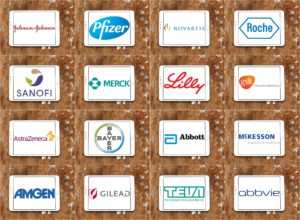 Last weekend, Jay Hancock of Kaiser Health News wrote an article entitled “Everyone Says We Must Control Exorbitant Drug Prices. So, Why Don’t We?” I’ve been thinking about it all week, as it ubiquitously made the rounds among our community of activists, journalists, policy wonks, etc.—many passionate people that focus on drug pricing and viable solutions.
Last weekend, Jay Hancock of Kaiser Health News wrote an article entitled “Everyone Says We Must Control Exorbitant Drug Prices. So, Why Don’t We?” I’ve been thinking about it all week, as it ubiquitously made the rounds among our community of activists, journalists, policy wonks, etc.—many passionate people that focus on drug pricing and viable solutions.
Mr. Hancock’s answer was most cogently provided by writing that momentum has slowed on drug prices: “amid rancorous debates over replacing Obamacare (…) stalled by roadblocks erected via lobbying and industry cash.” Yesterday, with the threat of Obamacare’s demise alleviated, it’s worth noting, Congressman Elijah Cummings (D-DE) called out President Trump’s inaction on drug prices and for flouting his campaign promises. I suspect there will be more hearings, and talk, and talk, and condemnation, more talk, and exasperation with Big Pharma, mostly from Democrats but also from Republicans.
While pharmaceutical company lobbying initiatives loom over Congress’ every move preventing legislation and regulatory reforms to actually help Americans, patients are forced to ration and tens of millions skip taking critical meds due to cost. Mr. Hancock gives a rundown of the policies on the table to tackle high drug prices: drug importation, transparency, Medicare drug price negotiations, improved generic availability and competition. (more…)
Tagged with: jay hancock, Kaiser
by Lucia Mueller, President, PharmacyChecker.com | Sep 1, 2017 | Drug Importation
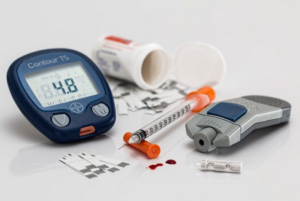 With insulin prices skyrocketing, no wonder the diabetic community is taking to social media to network and share their experiences as they swap tips and tricks not only for moral support, but also financial.
With insulin prices skyrocketing, no wonder the diabetic community is taking to social media to network and share their experiences as they swap tips and tricks not only for moral support, but also financial.
This month, we received an interesting consumer comment via our Facebook page asking if we knew that Americans are driving to Canada to buy insulin without a prescription. Well, no. As our primary focus is mail-order pharmacy, it wasn’t on our radar. Nevertheless, it sparked our interest and we’d like to share our findings with the PharmacyChecker community.
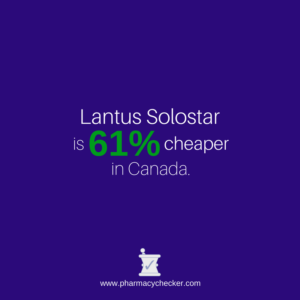 After calling 20 pharmacies across Canada (specifically in the following cities: Québec City, Toronto, Alberta, Victoria, Winnipeg and Regina) the answer is clear: Americans can obtain insulin without a prescription in Canada. All pharmacists that I called reported—rather matter-of-factly—that you do not need a prescription for any insulin product, which would include Lantus Solostar, Humalog and Levemir. We specifically talked about Lantus Solostar, a popular, long-acting insulin. The price in Canada for a three-month supply of Lantus Solostar (3 ml) is currently around $447.00 while the average retail price in the U.S. is a staggering $1,160.39. Apparently, they practice what they preach: all patients—including Americans—do not need a prescription to obtain insulin in Canada. While a prescription is not needed, the drugs are available only from the pharmacist and must be retained within an area of the pharmacy where there is no public access and no opportunity for patient self-selection (also known in the U.S. as Behind the Counter (BTC).
After calling 20 pharmacies across Canada (specifically in the following cities: Québec City, Toronto, Alberta, Victoria, Winnipeg and Regina) the answer is clear: Americans can obtain insulin without a prescription in Canada. All pharmacists that I called reported—rather matter-of-factly—that you do not need a prescription for any insulin product, which would include Lantus Solostar, Humalog and Levemir. We specifically talked about Lantus Solostar, a popular, long-acting insulin. The price in Canada for a three-month supply of Lantus Solostar (3 ml) is currently around $447.00 while the average retail price in the U.S. is a staggering $1,160.39. Apparently, they practice what they preach: all patients—including Americans—do not need a prescription to obtain insulin in Canada. While a prescription is not needed, the drugs are available only from the pharmacist and must be retained within an area of the pharmacy where there is no public access and no opportunity for patient self-selection (also known in the U.S. as Behind the Counter (BTC).
There are some important nuances about insulin sales in Canada that might interest you. To start, insulin is not on the Health Canada Prescription Drug List. Health Canada—the regulatory agency in Canada that is comparable to the FDA in the United States—lists insulin as a Schedule II drug. The word “schedule” in the U.S. is used to identify those medications associated with greater potential for addiction, such as Ambien or Vicodin (a prescription opiate) and other controlled substnaces. The lexicon is confusingly different in Canada and important to explain here! In Canada, Schedule II drugs, while not as strictly regulated, do still require professional intervention from the pharmacist at the point of sale and possibly a referral to a practitioner. Click here for the drug schedules regulations in British Columbia.
And did you know that when you’re crossing the border, the U.S. Customs Border Patrol (CBP) is not allowed to stop the importation of FDA-approved medication from Canada for personal use – even though it’s technically prohibited? See: Public Law 115-31. Now you know!
Something to keep in mind for those Americans ordering medications from Canada (or from any other country) through a PharmacyChecker-verified online pharmacy: you must have a prescription if a prescription is required in the United States even if one is not required elsewhere!
So, in practice, insulin products can be sold in Canada without a prescription after consultation with a pharmacist. Sound great? It is! Nevertheless, be sure to give that friendly Canadian pharmacist a call to make sure they can help you before filling up your tank for that road trip to Toronto.
Tagged with: Canada Pharmacy, diabetes, Drive to Canada, Insulin, Type 1 Diabetes, Type 2 Diabates
by Gabriel Levitt, President, PharmacyChecker.com and Prescription Justice | Aug 25, 2017 | Drug Importation
 The National Association of Chain Drug Stores (NACDS) says that foreign pharmacies who sell to Americans over the Internet, due to lack of regulation and counterfeit drugs, are dangerous. I have one question: Would that include their own pharmacies in the United Kingdom? After all, Internet pharmacy in the UK is regulated.
The National Association of Chain Drug Stores (NACDS) says that foreign pharmacies who sell to Americans over the Internet, due to lack of regulation and counterfeit drugs, are dangerous. I have one question: Would that include their own pharmacies in the United Kingdom? After all, Internet pharmacy in the UK is regulated.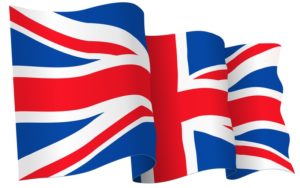
The NACDS is not an objective observer on this issue. As I see it, it is in cahoots with Big Pharma in sowing what is blatant misinformation about prescription drug importation and international online pharmacies. See myths and facts. For big U.S. pharmacy chains, lower prices from international pharmacies are a commercial threat.
One of NACDS’s principal members is most commonly referred to as Walgreens, but you should start calling it by the name of its main corporation, Walgreens-Boots Alliance. Why? In the United Kingdom, Boots has been in the pharmaceutical business for 165 years and is that country’s largest distributor of pharmacy products. You can bet that Walgreens-Boots is selling the same medication in the UK at a much lower cost than here in America.
For example, Januvia 100mg (sitagliptin), which treats type 2 diabetes, costs $1508.99 for 90 pills at Walgreens in Brooklyn (I just called). Compare that to $273.60, the price available online from a UK pharmacy, one verified by PharmacyChecker.com. That UK pharmacy is a lifeline of affordable medication to an uninsured American—of which there are still around 28 million—who is prescribed Januvia. (By the way, the “American” Januvia sold in Walgreens is made in the UK). (more…)
Tagged with: boots, NACDS, UK, walgreens
by Gabriel Levitt, President, PharmacyChecker.com and Prescription Justice | Aug 4, 2017 | Drug Importation
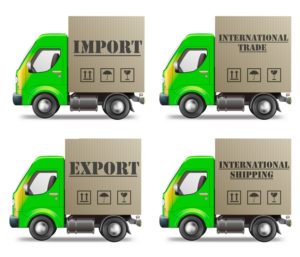
American medications are usually imported. Now you know.
Yesterday, PharmacyChecker released the findings of our new research that shows 70% of brand name medications sold in U.S. pharmacies are not made in America. Those same medications can be purchased at 70% less in Canada – and even less in other countries. As I’ve written before, there’s a troubling aspect of the public policy debate about drug importation: in many news stories, both policy-oriented and those dedicated to consumers, it seems as if drug importation is currently illegal, which is simply not true. Our data indicates that when Americans walk into their local Walgreens or CVS to fill a prescription, the pharmacist will mostly likely dispense an imported drug – that’s if the patient can actually afford it: 45 million did not fill their prescription last year because of cost.
Our findings come in the wake of an announcement from the Congressional Budget Office about The Affordable and Safe Prescription Drug Importation Act of 2017 (S.469), which aims to make it expressly legal to import lower-cost medications from Canada. CBO’s report shows that if S.469 becomes law, it would shave almost $7 billion off the deficit by 2027. We believe the savings would be much greater. The CBO report reflected deficit savings, but did not include the savings that individuals would also realize from buying lower cost medications from Canada. (more…)
Tagged with: affordable and safe prescription drug importation act, CBO, foreign made, pharmacychecker research, S.469
by Tod Cooperman, M.D., CEO, PharmacyChecker.com | Mar 30, 2017 | Drug Importation, Government
LegitScript is again disseminating misinformation to discredit PharmacyChecker.com and its mission to help consumers safely access affordable medication, and we can bet that the very powerful pharmaceutical company interests LegitScript allies with are enjoying its efforts.
This week, LegitScipt’s John Horton blogged with apparent glee about charges by the U.S Attorney’s Office for Western Pennsylvania implicating several Canadian individuals and their company, Quantum Solutions, for allegedly exporting wholesale quantities of medications manufactured for foreign markets to U.S. pharmacists between 2007 and 2011.
Horton makes the mistake of saying that the case involved charges against an internet pharmacy certified by PharmacyChecker, but this is not the case. No online pharmacy is charged in the case, let alone any online pharmacy verified by PharmacyChecker.
Horton also states that the case involved the shipment of “bad” medicine, but there is nothing in the court documents indicating a problem with the quality of any of medications. Their labeling was apparently for the countries where they were being sold, which makes them “misbranded” if sold in the U.S. but not “bad” medicine. The drugs involved were expensive brand name drugs like Abilify, Zyprexa, and Plavix, costing hundreds of dollars per month in the U.S. but normally 80-90% lower in price outside the U.S. — which is likely what motivated the U.S. pharmacists to allegedly purchase the medication from abroad.
John Horton’s blog shows that in the world of online pharmacies, one party you can’t trust for reliable information is John Horton.
A very strange thing about the government’s filing in this case is an attachment listing website domains, a few of which are for international online pharmacies verified in our program. There is no claim of wrongdoing by any of these sites. The filing explains that these website addresses are property which the U.S. government seeks to have forfeited by the defendants in the event of a conviction, as the addresses may have been purchased with proceeds of the alleged offense. Certainly there are other assets owned by the defendants that our government could seek, so why focus on these uninvolved websites? It would seem that if these websites were taken by the government, the public would lose access to several safe, low-cost pharmacies.
Not surprisingly, John Horton misrepresents at least one of these pharmacies as being “the subject of today’s criminal charges” (more lies). Horton goes further by posting this list of websites to his blog in what we see as an attempt to smear the reputations of these uninvolved sites and part of his ongoing tactics to scare Americans away from safe and affordable medication and keep us hostage to inflated drug prices at home.
Tagged with: affordable prescriptions, brand name drugs, LegitScript
 The FDA has just announced that the next few weeks may spell shortages of some critical, life-saving medications. Why? Well, a lot of pharmaceuticals you rely on here in the U.S. are manufactured in Puerto Rico, the U.S. territory which was tragically hit—and hit hard— by Hurricane Maria. If your medication is not available on U.S. pharmacy shelves, then you may be able to find it online, where it may be stocked internationally, but make sure to stick to pharmacy websites verified by PharmacyChecker.
The FDA has just announced that the next few weeks may spell shortages of some critical, life-saving medications. Why? Well, a lot of pharmaceuticals you rely on here in the U.S. are manufactured in Puerto Rico, the U.S. territory which was tragically hit—and hit hard— by Hurricane Maria. If your medication is not available on U.S. pharmacy shelves, then you may be able to find it online, where it may be stocked internationally, but make sure to stick to pharmacy websites verified by PharmacyChecker.







